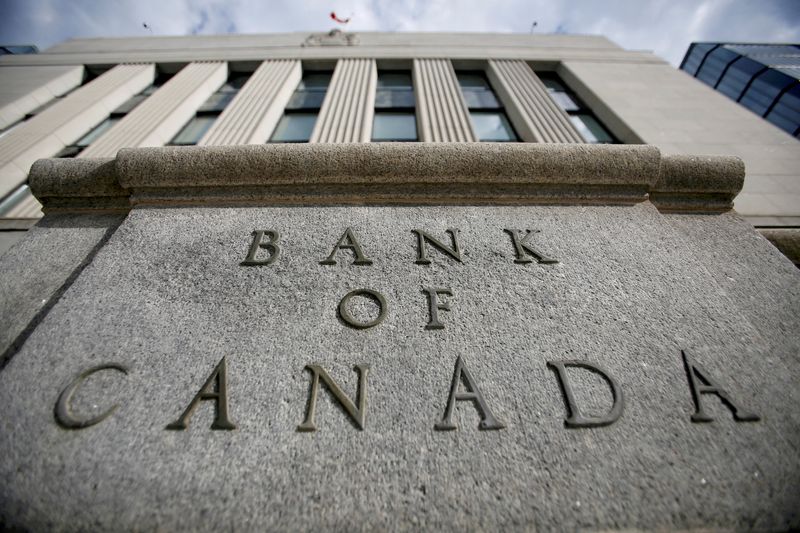By Fergal Smith
TORONTO (Reuters) - As the Bank of Canada pauses its interest rate hikes, investors are betting that the sensitivity of Canada's economy to higher borrowing costs will result in a historically large gap between the tightening campaigns of the BoC and the U.S. Federal Reserve.
Analysts have long argued that Canada's economy is more sensitive to interest rate hikes than the U.S. economy, pointing to the higher debt loads of Canadians after they participated in a red-hot housing market in recent years and the shorter Canadian mortgage cycle.
But now some major economic data has given substance to that view and supports the market's recent move to price in a wider gap between the end points for interest rate hikes in Canada and the United States, say analysts.
Canadian inflation slowed more than expected to 5.9% in January and gross domestic product was flat in the fourth quarter, held back by weakness in the interest rate-sensitive parts of the economy, including housing investment as well as business spending on machinery and equipment.
A lower expected peak for Canadian rates has pressured the Canadian dollar against its U.S. counterpart. The currency hit a four-month low on Wednesday at 1.3815, or 72.39 U.S. cents, after the BoC left its benchmark interest rate on hold at 4.50%, becoming the first major central bank to suspend its tightening campaign.
A weaker currency could drive up the cost of imported goods for Canadians, adding to inflation pressures.
"The Canadian economy is just far more sensitive to interest rates because of factors like the crazy amount of debt-to-income that we've got, because of our overheated housing market," said Jay Zhao-Murray, a market analyst at Monex Canada Inc. "The transmission channels of monetary policy are more effective in Canada than in the U.S."
Contrasting with the BoC, Fed Chair Jerome Powell delivered a message this week of higher and potentially faster rate hikes.
Money markets expect the BoC's policy rate to peak at about 4.75% this year, or roughly 90 basis points below the expected end point of the Fed.
Canadian rates have peaked below U.S. rates in the three major tightening cycles since the start of the millennium, with the gap ranging between 50 and 75 basis points.
"Poring over the national accounts, it's increasingly clear that interest-sensitive demand has wilted in Canada," Warren Lovely and Taylor Schleich, strategists at National Bank of Canada (OTC:NTIOF), said in a note after the recent GDP data.
Their work shows that interest rate-sensitive demand in Canada's economy was 26% of final domestic demand at the start of the current rate hike cycle, one of the highest shares on record, compared with 21% for the United States.

Still, there could be a limit to how much interest-rate divergence the BoC will allow, say analysts. Last October, Governor Tiff Macklem warned that the bank might tighten more aggressively in response to a weaker currency after the loonie hit a two-year low of 1.3977.
"If the spread diverges any further there is going to be further depreciation of the Canadian dollar and that will feed in to eventually inflation in this country," said Royce Mendes, head of macro strategy at Desjardins.